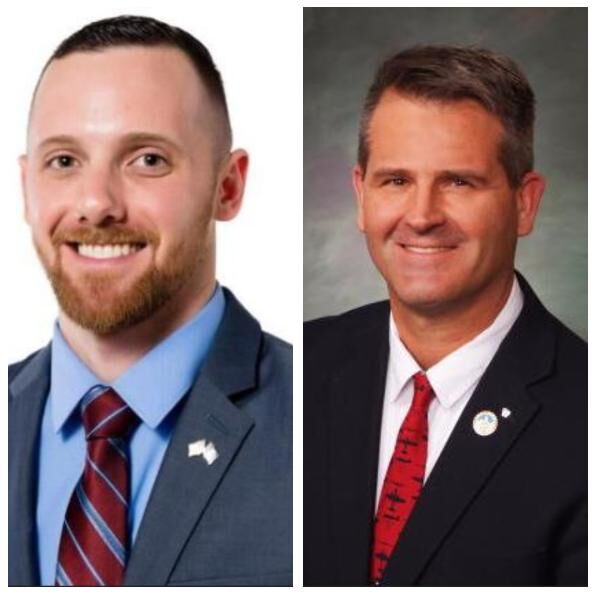INSIGHTS | Colorado’s off-year election was more than it seemed

A casual observer of politics might see Tuesday’s statewide ballot as much ado about nothing, a zero-sum game. Those of us who spend our days and happy hours gossiping about politics, however, beg to differ.
Today is no different than Monday in terms of taxes and laws. Voters rejected raising the sales levy on recreational marijuana. They said no to cutting property tax rates, and nyet to taking away some of the mojo politicians and bureaucrats have when they spend the public’s money. If you don’t meet the devil in the details, those occurrences themselves are counter to intuition and history.
Watch any soap opera and you’ll be entertained by subplots, hidden motives, scandalous affairs and things that aren’t what they seem.
Campaign politics is no different, no matter if the turnout is 3.3 million or 1.2 million. Dark money all spends the same.
Voters this time around, for once, or twice, robbed lawyers of some prime billable hours.
Let’s start there.
Michael Fields at Colorado Rising State Action rounded up some undisclosed donors through some other conservative groups to get Proposition 120 on the ballot to lower property tax assessment rates across the board.
Legislators involved have denied it to me privately and publicly, but faced with tax revenue shrinking by a projected $1.1 billion a year, they wigged out. For perspective, the legislature makes spending decisions about $13 billion of the state’s overall $34 billion budget. In tax revenue, a baker’s dozen of billions would become a dozen.
Democrats pushed through a bill to rewrite property tax classifications, so that the ballot measure would only apply to commercial lodging and multi-unit dwellings, such as condos, apartments or townhouses. That cut the pot to about $150 million, even though lawmakers lowered the rate for two years.
I rode the first wave of political observers who did a double take, one of those “can they do that?” moments.
The people’s representatives seemed to cut the people off at the pass, even though, notably, Proposition 120 tanked on Tuesday.
My friend and legislative influencer extraordinaire Sandra Hagen Solin said it was a unique and far-reaching impact aside from property taxes.
“Oftentimes initiatives are put forward as an offset to legislative measures that are unfolding, or the reversal of a course or just driving an agenda forward,” she said as she moderated a panel for the Colorado Business Roundtable last month. “To have the legislature drive legislation to effectively preempt that which is on the ballot really does call into question appropriateness and constitutionality. Those questions come to mind.”
Proposition 120’s defeat Tuesday headed the lawyers off at the pass.
If voters and legislators differed, all factors being equal, the courts tend to look at the most recent decision and the will of the parties involved, my decades doing this tell me.
In this case, the voters spoke and they did it Tuesday. The case was headed to court if Prop 120 had passed, so taxpayers avoided some legal fees.
Denver dodged its own day in court, if Initiative 300 had passed. If voters had approved it, 300 would have required the city to remove homeless camps within three days, or face lawsuits from the public. The problem with that is a federal judge said in January that the city has to provide seven days’ notice before clearing away a right-of-way camp.
The city is fighting the judge’s order from January, contending seven days is too much. If 300 had passed, the taxpayers’ lawyers likely would have had to simultaneously argue that three days is too little.
Complicating matters even more, Sunday a Denver District Court judge ruled that the three days was a no-go.
Clarence Darrow would have loved a piece of those contingency fees. Thanks to voters, those dollars vanished in the ether of Wednesday morning.
Amendment 78 had election-year ramifications, and to just this year.
The failed change to the state constitution was a direct political shot at Democratic Gov. Jared Polis, who parceled out $1.7 billion in emergency pandemic relief when the legislature wasn’t in session last year. Amendment 78 would have required every spending decision to pass through the legislature and give the electorate a venue to say its piece at a public hearing.
Think of it as the Taxpayer’s Bill of Rights with a microphone.
Moreover, the GOP is priming a “King Polis” campaign to assert the governor wears a crown, an easy though tired caricature for a very rich man, though a monarch who prefers sneakers and jeans.
The ballot measure sought to strip away some of his (and future governor’s) authority as Colorado’s chief executive, but moreover to bring attention to the way Polis spent with complete autonomy during the crisis.
“Amendment 78 would end executive branch slush funds,” the state Republican Party said to its conservative constituency in an email before the election.
Speaking of slush funds, an old nautical term for selling a ship’s excess grease, be it animal slop or whatever, to buy some treats for the crew.
“These days folks think of it as burning through taxpayer dollars, not squirreling away pennies from selling grease,” The state Republican Party said in an email to its members last week.
Pirate Polis, how’s that for a subplot?













